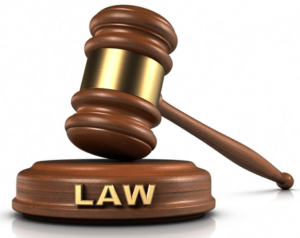Court throws out GIBA case against NCA
 The suit of Ghana Independent Broadcasters Association (GIBA) challenging the National Communication Authority’s (NCA) introduction of conditional access to Free to Air-Television policy has been thrown out by the Supreme Court.
The suit of Ghana Independent Broadcasters Association (GIBA) challenging the National Communication Authority’s (NCA) introduction of conditional access to Free to Air-Television policy has been thrown out by the Supreme Court.
The seven-member panel unanimously held that the original jurisdiction of court was not properly invoked by GIBA.
GIBA this year proceeded to the apex Court of the land over NCA’s decision to introduce conditional access to free-to-air TV broadcasting which to them breached the right to free press as enshrined in the 1992 Constitution.
In GIBA’s writ, the association was demanding a number of reliefs bothering on the Conditional Access (CA) System introduced as a mandatory requirement by the NCA.
The CA meant that media content of free-to-air broadcasters had been blocked by the NCA unless certain criteria are met.
This GIBA held constituted an unnecessary restraint on the establishment and operation of private media as enshrined in the 1992 Constitution.
GIBA was seeking a declaration that the blockage of media contents of free-to-air broadcasters through the use of the Conditional Access System introduced by the NCA was unconstitutional as same constitutes an unreasonable and unnecessary abridgement of the freedom of the media contained in Article 21(a) and 162 (1) of the Constitution.
It was further seeking a declaration that the blockage of media contents of free-to-air broadcasters through the use of the Conditional Access System introduced by the NCA contravened the spirit and letter of Article 21(f) of the 1992 Constitution since same constitutes an abridgement of the right to information guaranteed under the Constitution.
The Conditional Access System was to commence in June this year.
GIBA was also seeking an order directed at the NCA to remove from the Minimum Requirements for Reception of Digital Terrestrial and Satellite Television Services any system in the nature of Conditional Access that encrypts or blocks the contents of Free-To-Air television channels from being received.
GIBA and the Ministry of Communications have disagreed over the introduction of the Conditional Access System even after the Ghana Standards Authority (GSA) has made it clear that, by all Standards the CAS cannot be said to be mandatory for free-to-air receivers.
Although GIBA welcomed the standards set by the GSA it allegedly accused the Ministry of Communications of doctoring the GSA’s document which instructed the broadcast industry to abide by the mandatory requirements for the reception of all TV programme carried on the nation’s free-to-air digital broadcasting facility.
Mr Gary Nimako Marfo represented the NCA while Mr Kweku Agyemang represented GIBA.
The Attorney-General was represented by Mr Jonathan Acquah, a Principal State Attorney.
The seven member panel who constituted the court were Justices Anin Yeboah, the Chief Justice (presiding), Sule Gbadegbe, Jones Dotse, Nene Amegatcher, Samuel Marfu- Sau, Prof. Ashie Kotei and Mariama Owusu.
Source: GNA
